1600 jobs slashed as ‘green revolution’ stalls at Northvolt
A major company was supposed to spark a “green revolution” and wean the world off oil and Chinese imports, but it is not going to plan.
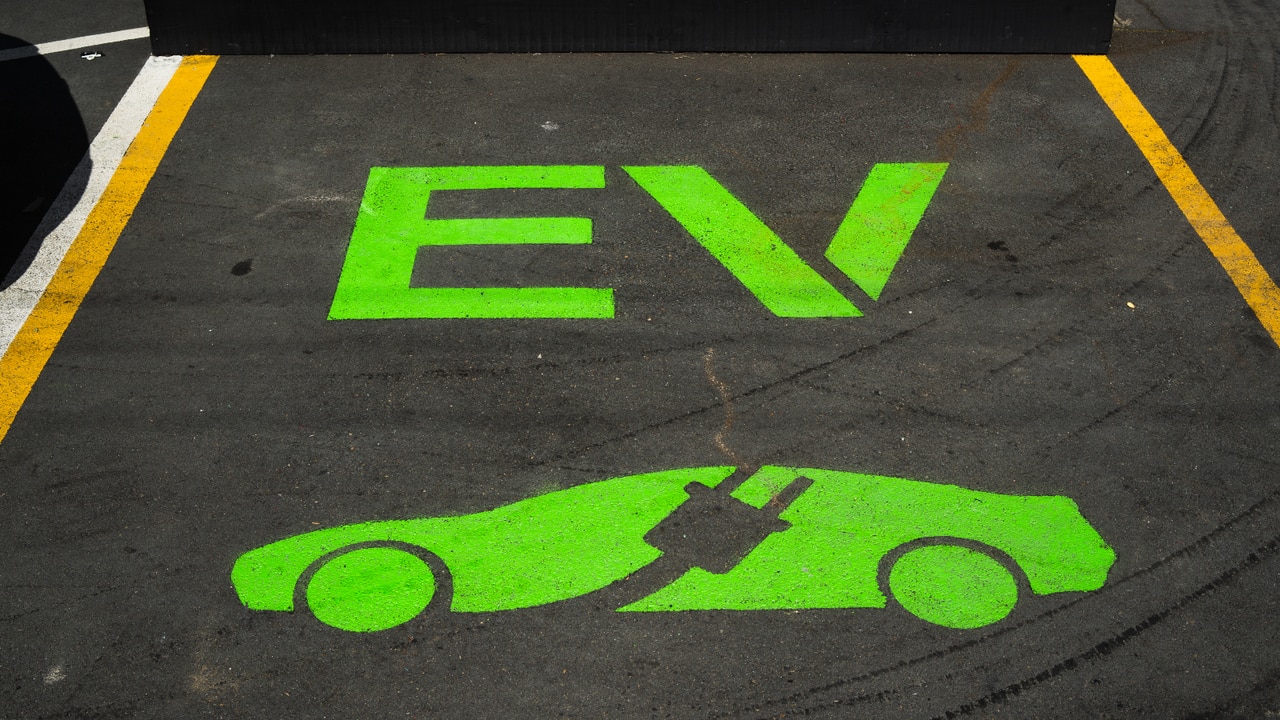
Motoring News
Don't miss out on the headlines from Motoring News. Followed categories will be added to My News.
Things can change an awful lot in just three years.
Back in 2021, the opening of a giga factory in an icy city near the Arctic Circle was hailed as the starting point of a “green industrial revolution” that would change the world.
The factory was opened by an exciting and rapidly-expanding business called Northvolt that had a mission to build “the world’s greenest battery” to power electric vehicles.
Sweden’s then prime minister, Stefan Löfven, said the opening of Northvolt’s base in Skelleftea held huge significance in the transition away from oil and imported batteries from China — not just for Europe, but for the world.
His optimism did not seem misplaced at the time. Northvolt had attracted billions of dollars of investment from Wall St giants like Goldman Sachs and Blackrock and orders from the world’s biggest car companies including Volkswagen, BMW and Volvo.
But, in more recent times a far more sobering reality has emerged.
Last week, the beleaguered electric car battery maker revealed it would cut a quarter of its staff, as it struggles with strained finances and a slowdown in demand.
The brutal cuts in Sweden come as electric car sales slump in Europe and the continent lags far behind China in battery production. The company employs 6,500 people, according to its website. A staggering 1,600 of those will lose their jobs.
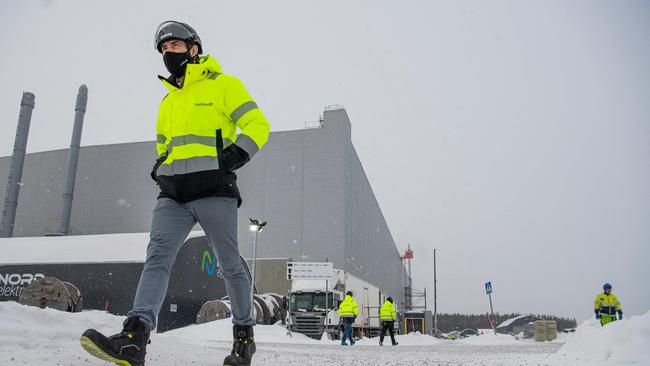
Peter Carlsson, Northvolt’s boss, has blamed “headwinds in the automotive market, and wider industrial climate” for the difficult decisions.
“While overall momentum for electrification remains strong, we need to make sure that we take the right actions at the right time,” he said in a statement.
He added that Northvolt needed to “focus all energy and investments into our core business.”
It comes as global car companies, including Northvolt’s biggest investor, Volkswagen, have had a tough time selling EVs, with some posting losses from their electric divisions.
A major problem for Northvolt is that as demand for EVs has softened, the demand for the cells that power them has followed suit.
Even the most well-established battery-makers like South Korea’s SK On and LG Energy Solution have seen profits take a big hit — and the Swedish company has fared even worse.
Northvolt lost $1.74 billion last year — that’s four times its loss in 2022.
Calls to rethink petrol-powered car ban timeline
Northvolt’s problems could become even more concerning given the bleak situation for the European EV market right now.
Last week, the European auto industry called for “urgent relief measures” as electric car sales plummet in the region. It said there was a “continual downward trajectory” in EV sales.
New-car registration data reveals European electric vehicle sales fell 45 per cent in August 2024 with 92,627 sales, compared to 165,204 at the same time in 2023, while the market share for battery-electric vehicles has fallen from 21 per cent to 14.4 per cent.
The European Automobile Manufacturers’ Association (ACEA) said the fall was driven by Germany and France, the largest new-car markets in the European Union.
In Germany, electric vehicle sales dropped a massive 68.8 per cent in August compared to the same time in 2023, while France dropped 33.1 per cent.
The situation is so dire that the ACEA called on the EU to rethink its timeline for banning petrol-powered cars — currently slated for 2035.
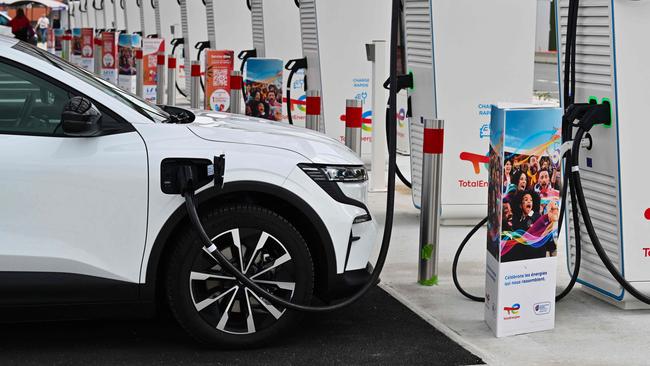
It said while carmakers have supported the transition to electrified vehicles, “the other necessary elements of this systemic shift are not in place”.
“We are missing crucial conditions to reach the necessary boost in production and adoption of zero-emission vehicles: charging and hydrogen refilling infrastructure, as well as a competitive manufacturing environment, affordable green energy, purchase and tax incentives, and a secure supply of raw materials, hydrogen and batteries,” said the ACEA board.
“Economic growth, consumer acceptance, and trust in infrastructure have not developed sufficiently either.”
Self-inflicted pain
Although the market is faltering, Northvolt’s biggest issue is self-inflicted according to The Economist.
It reported the company had a pot of funding worth $22 billion last year which it spent “far and wide” in projects like developing a sodium-ion cell battery and working on wood-based batteries with a paper company.
Northvolt said it was spending on average $434 million a month with the aim of becoming a vertically integrated European battery giant with intensive manufacturing sites in Canada, Germany, Poland and Sweden.
However, it lost sight of its core money-making purpose of making EV batteries on time for its big clients like BMW — which spectacularly pulled the plug on a $3 billion order of cells in May because of delays.
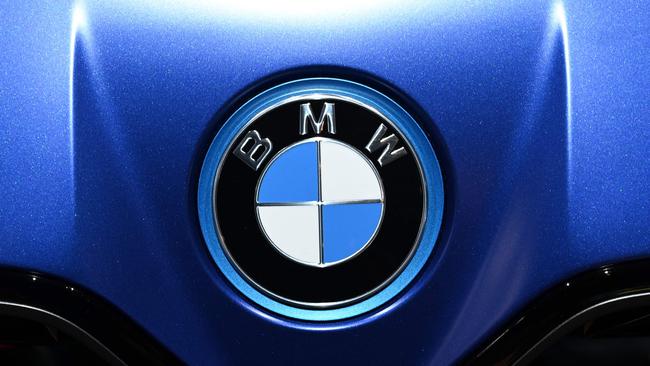
Major job cuts
Northvolt, which previously warned that cuts were coming, said that following “initial steps” of a strategic review it estimated that proposed cost-saving measures would result in about 1,000 redundancies at its primary Skelleftea plant — where an expansion project would be suspended.
The company had intended to expand the capacity of the facility to provide an annual output of 30 GWh, but will now focus on ramping up to 16 GWh.
In July, it said it hoped to reach an annual production of over one GWh this year — still far from the facility’s capacity.
One GWh is enough to equip 20,000 average sized cars.
“Success in the ramp-up of production at Northvolt Ett is critical for delivering to our customers and enabling sustainable business operations,” Carlsson said in a statement.
Another 400 positions would be cut in the city of Vasteras and 200 in the Swedish capital Stockholm.
“The rescoping of operations is critical to ensure a sustainable operation and cost base,” Northvolt said.
It added that “to achieve this a workforce reduction of approximately 20 per cent at a global level, and 25 per cent in Sweden is required”.
Falling behind to China
Northvolt has been seen as a cornerstone of European attempts to catch up with China and the United States in the production of battery cells, a crucial component of lower-emission cars.
Europe accounts for just three per cent of global battery cell production, but has set its sights on 25 per cent of the market by the end of the decade.
Northvolt still reports to have contracts worth $80 billion with customers such as Scania, Volvo and Volkswagen.
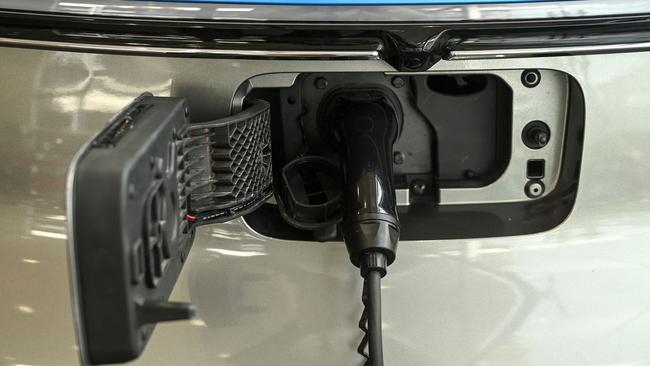
Volkswagen is also Northvolt’s largest shareholder, with a 21 per cent stake. Production delays and lower demand from automotive customers have led to a rapidly deteriorating financial situation, which accelerated at the end of the summer, according to the business daily Dagens Industri.
According to Swedish media reports, Northvolt is trying to organise a new share issue to raise 7.5 billion kronor ($1 billion).
The battery maker has also faced scrutiny in Sweden over concerns about work safety at its sites, with Swedish police currently investigating a number of unexplained deaths of factory workers, who died after working at the plant in Skelleftea.
In mid-September, Swedish Prime Minister Ulf Kristersson said that “there are no plans for the Swedish state to become a part owner of Northvolt or anything like that”.
Since its creation, the Swedish company has secured $22 billion of credit and capital.
As it looks out on a rocky landscape, it will have to choose how to spend that money very wisely.
— with AFP
Originally published as 1600 jobs slashed as ‘green revolution’ stalls at Northvolt



